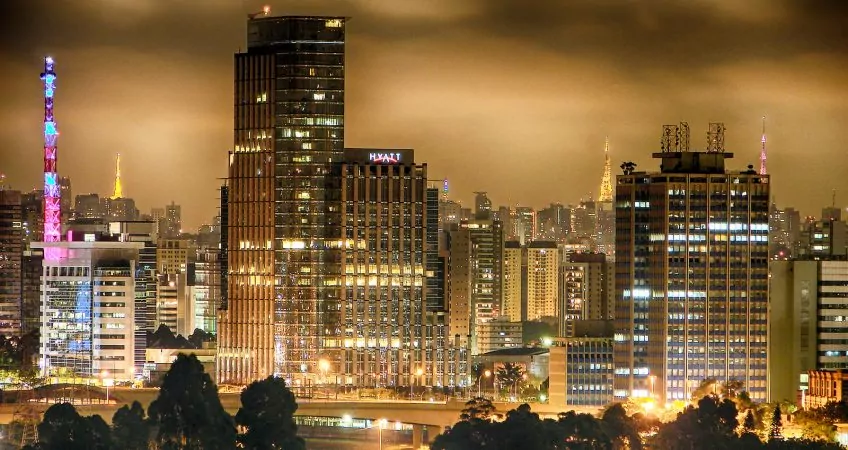
Brazil’s Minha Casa, Minha Vida Program Returns 15% In One Year
Earn A Turn-key 15% In One Year From Brazil’s Housing Crisis
Our team of global property experts in Panama City for this week’s Global Property Summit is looking at 13 different countries, the markets they have identified as offering the greatest opportunity for the would-be real estate investor right now.
In these countries, our team is highlighting 21 specific current investment opportunities. One of these, in Brazil, got my attention as I sat in the audience yesterday listening attentively.
A developer in Brazil has tapped into a program offered by the Brazilian government that helps to put low- and middle-income Brazilians into decent homes.
The housing shortage for this segment of the population in Brazil is enormous. More than 8 million new homes are needed to supply the demand. The developer who presented to the group today, one of a number in Brazil taking advantage of the opportunity presented by the government-backed Minha Casa, Minha Vida (My House, My Life) program, is intending to build 40,000 homes for this market over the next five years.
Here's How This Works
The developer is building homes in projects that are approved for the Minha Casa, Minha Vida program. That approval gives buyers access to preferred lending rates that are government-subsidized. It also allows buyers to get grants from the government for the down payment. These buyers come to the developer pre-approved and ready to buy, meaning the sales side of the equation is taken care of.
The developer needs investors to fund construction. They already own the land and have the construction permits in hand. Investor money funds the construction of the houses, and the investor’s return comes from the resale of the houses to the end users.
The investor is essentially pre-buying a housing unit that the developer will resell for him, generating a fixed return. In fact, the developer not only locks in a fixed return for the investor, he also takes on the currency risk, as the houses are sold in Brazilian reais. The developer can do this partially because the timeline for the investment is only one year. From the time investor funds are received, the developer has 90 days to start construction of the specific house the investor has bought. Construction time is between six and eight months.
Turn-Key Investment
This is a completely turn-key investment, and your returns are fixed in your original investment currency (the developer will write contracts in U.S. dollars, Canadian dollars, British pounds, euros, Singapore dollars, or Hong Kong dollars). Whatever currency you invest in originally, that’s the currency your return is paid out in, at a fixed rate of 15% at the end of one year. It’s that simple.
The developer not only takes on the currency risk with the real, but he also has removed all the barriers usually faced by individual investors in this country. The investment funds are held in escrow with an attorney and released only as construction of the unit progresses. You as the investor have the house as collateral should something happen to the developer during construction. If the developer doesn’t sell the house and pay back the investment plus the 15% by the end of the investment term, then you can take possession of the house yourself and sell it through a local agent. Obviously, that’s not the goal, but the security of the house is there for you.
As the developer has already completed three developments to date (amounting to more than 1,000 units completed and another 800 currently under construction), the necessary systems are in place, and the non-fulfillment risk is minimal.
Real Estate Investors
Given all this, why does the developer need investors? Why not go to a local bank in Brazil for a construction loan? The simple answer is that it would cost more money and the developer wouldn’t have as much control over his business if he worked with a local bank for funding. Interest rates in Brazil are high, and, more important, banks tend to withhold the full amount of a construction draw even for simple things outstanding on the punch list. One broken window in a batch of 20 houses could stall a bank payment in this country for months. The developer wants to avoid those kinds of bureaucratic issues.
With more than 1,000 investors already in place (many invested in more than one unit and/or have renewed their investments after the first ones closed), the developer still needs more investors to reach production goals for the Minha Casa, Minha Vida housing program. This is the opportunity that the developer presented to our group today.
We like Brazil as an investment market. That’s why it’s among the countries we’re featuring as part of this week’s event. The downside to Brazil is that it’s a difficult market for the small investor to take advantage of successfully. Between the language and the bureaucracy, the learning curve for an individual investor can be big.
That’s one reason I like this offer. The developer has packaged everything to minimize the headaches and the risks for you the investor, leaving you with an opportunity to take advantage of the demand the growing Brazilian housing market is creating without having to invest the time and effort to figure out how to navigate this marketplace on your own.
For more information, get in touch here.
Kathleen Peddicord
“Lief, man, these things are addictive! My husband and I went to your Offshore Summit, and we just got the bug. We couldn’t get enough information or meet enough new people thinking about this go overseas thing. We are hooked.
“This is our second conference with you so far, but I have a feeling this won’t be the last you’ll see of us!”
K.B., an attendee at this week’s Global Property Summit



